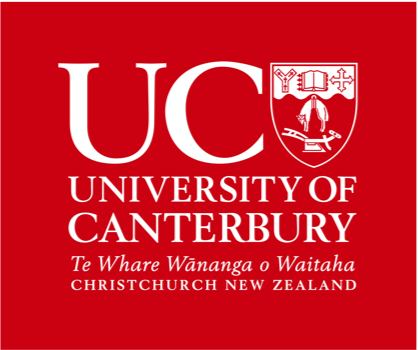The global business environment is dynamic and ever-changing, with technology being a major disruptor of industries, phasing out the old for new and creating better ways to engage with customers and markets. On top of this, many are still reeling from the effects of globalisation more than two decades on.
As companies evolve, so does the nature of work. The gig economy continues to grow with more independent contractors, consultants, temps and freelancers. Work as we know it is being called into question, as employees demand more flexibility, commitment to their health and wellness and purpose beyond profit.
In the face of this, aspiring business students are in a conundrum. On the one hand, they seek a qualification to give them skills employers want and need in today’s rapidly-changing world. At the same time, they are journeying towards their own personal goals.
Assisting graduates to achieve this dual goal is an objective of the University of Canterbury Business School. This New Zealand business school does so by aiming to maintain a unique and high-profiled offering that sets them apart from the rest.
The UC Business School is ranked in the top five percent globally (AACSB accreditation), holding the No. 1 spot in the country for its marketing research department (the latest Tertiary Education Commission PBRF Assessment, 2012) and has received offers up to NZ$200,000 for its student innovators.

Source: UC College of Business & Law
Statistics like these precede graduates reputations when it comes to job interviews. They signify to potential employers that their education incorporated key business skills, was informed by the latest business research and has innovation at its core.
Having work-integrated learning and international experience helps, too. A recent report by QS found that international experience is a recruitment priority globally. Businesses are likely to be positively impacted when hiring employees with this experience on their résumés.
Another report by the Association of American Colleges & Universities (AAC&U) found that 93 percent of executives and 94 percent of hiring managers claim they would be more likely to hire a recent graduate who has held an internship or apprenticeship with a company or organisation. Similarly, job candidates with applied and project-based learning were viewed more favourably, too.
International student Ron (Seong Su) Park got both industry and international experience as an Accounting and Finance student at UC Business School. Not only did he gain part-time work with ANZ (the Australia and New Zealand Banking Group Limited) as a Personal Banker, he was also supported by the school in running his health food start-up.
Ron received funding for his venture and mentoring support from the industry after winning the UCE Summer Start-up programme.

Source: UC College of Business & Law
“I loved the opportunity that I had at UC. UC is so special in a way that if you are willing to make a difference in your community, there are people there to really support you through your journey,” he says.
A dedicated faculty and administration also ensures every UC Business School graduates’ strengths don’t go unnoticed by industry.
Nisha Mehrotra has enjoyed an illustrious career since graduating from UC Business School. After landing a job in Australia with global firm Deloitte as a Graduate Analyst in the Auditing division, she soon moved on to manage her own team at QSuper Ltd (Queensland government). Today, she’s a forensic accountant at SV Partners, Brisbane.
She remembers how UC Business School’s career advisors organised frequent career fairs and other events to help students gain insight into employer demands.
“The accounting degree itself was great – it had a mix of theory and practical which is all helpful in my current role. The lecturers were always happy to help and provide advice in terms of job applications and interviews, which was outside of their scope,” she said.
UC Business School knows these accolades would mean nothing if graduates weren’t happy or fulfilled with what they get from their business qualification.

Source: UC College of Business & Law
Akmal Fazleen (Master of Applied Finance and Economics) can attest to this. Originally from Sri Lanka, Akmal was once unsure of the subject he wanted to study.
Today, he is a thriving Financial Product Analyst at Jade Software, where he delivers effective product solutions for clients. He credits his Master’s at UC Business School for all the major benefits of his career today.
Life skills are the most important thing he gained from his studies, including the ability to adapt to potential career paths and a willingness to latch onto new opportunities to expand his strengths.
“What I have learnt during my first year in the workforce is that time spent at university is not just about the technical skills you learn, but also about the personal skills, and connections you make during that time,” he explains.
“It’s important to not be fixated on doing one thing, and to be involved in a variety of roles. Modern day career paths are no longer limited to conventional job descriptions, and being moulded into an individual who is capable of handling change, and learning to learn, is probably the most important life skill my time at UC has given me.”
Follow the University of Canterbury on Facebook, Twitter, YouTube, Snapchat, Instagram and LinkedIn
Liked this? Then you’ll love these…
What it takes to stay successful in business
How sustainable business tools will impact the next generation











